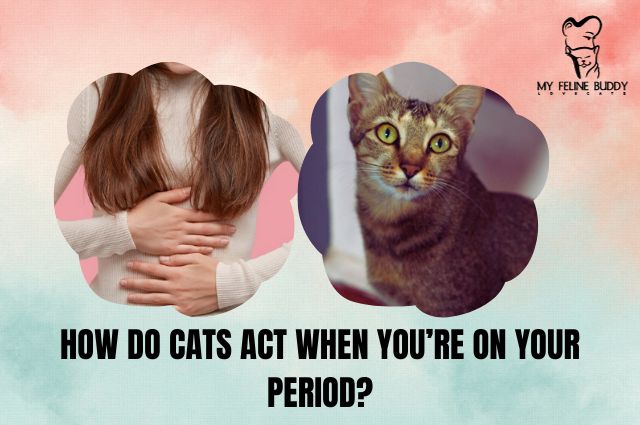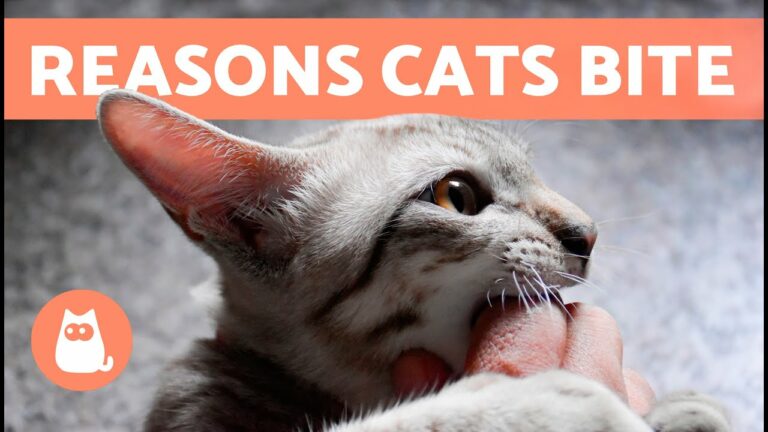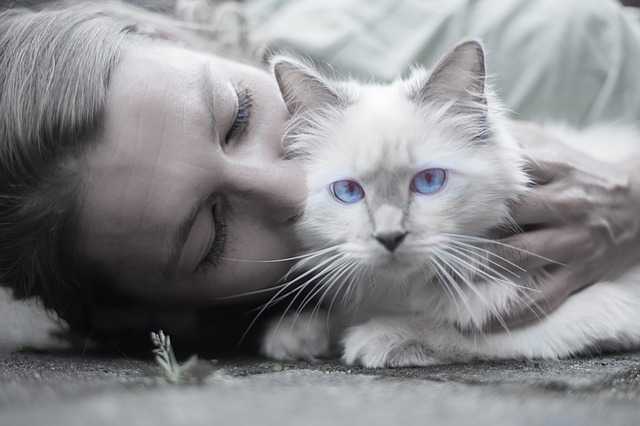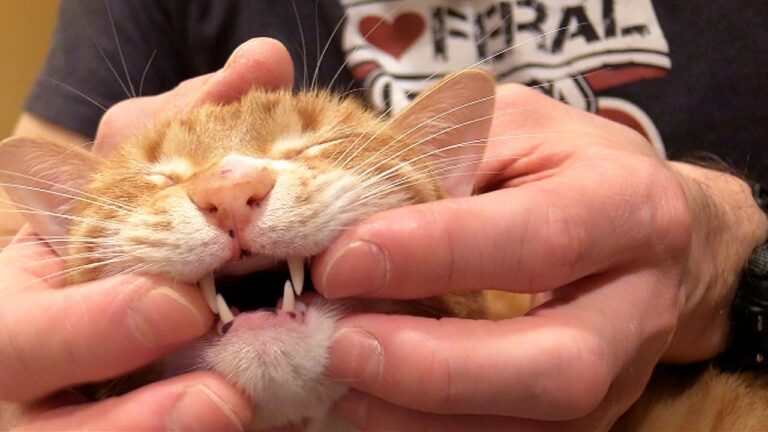How Do Cats Act When You’re on Your Period?
Have you ever noticed your feline friend behaving a little differently when you’re on your period? It’s not uncommon for
This article explores whether cats actually react to people when they experience their periods. Through scientific findings and real-life experiences, we’ll uncover the truth behind your
Do Cats Sense Menstruation?
The question “Do cats sense menstruation?” is quite common among
By contrast, we, humans, have just 5 million. This amazing capacity makes it possible for cats to know when subtle changes in your body’s scent happen, which can be triggered by hormonal variations as a part of the normal menstrual cycle.
Common Cat Behaviors During Menstruation
Cats can exhibit various behaviors when their owners are menstruating. It’s not unusual for your
You might find them cuddling up to you, following you around the house, or vocalizing more than usual. These behaviors can vary from one
While scientific studies are ongoing to better understand these behaviors, anecdotal evidence from
Factors Influencing Cat Behavior
Several factors can influence how your
Additionally, the strength of your relationship with your
Your
Read more: What is a good cat carrier?
FAQs About Cats and Menstruation
Do cats get more affectionate when you’re on your period?
While scientific research doesn’t provide a direct answer to this question, many
This phenomenon is likely linked to your
Why does my cat follow me around when I have my period?
Cats are naturally curious creatures, and they might follow you around out of curiosity or concern. Your
Keep in mind that your
Can cats smell menstrual blood?
Yes, cats have an extraordinary sense of smell, and they can indeed detect the scent of menstrual blood. Their keen olfactory senses can pick up even the subtlest changes in your body odor.
This ability is one reason your
You might also like: 15 Great Gift Ideas for Cat Lovers
Experience comfort and protection with Tampax Pearl Tampons, the #1 U.S. Gynecologist recommended brand* with LeakGuard Braid to prevent leaks and an Anti-Slip Grip for easy insertion. Free of dyes, perfume, latex*, and more, these tampons provide up to eight hours of individualized comfort with Tampax FormFit protection, and are FSA and HSA eligible for your convenience.
Should I be concerned if my cat ‘s behavior changes during my period?
In most cases, a change in your
However, if your
Coping with Cat Behavior Changes
Dealing with changes in your
- Maintain a Calm Atmosphere: Cats thrive in a peaceful environment. Try to keep your home calm and reduce stressors during your period. This may help your
cat feel more at ease. - Provide Extra Affection: If your
cat seeks more attention during your period, don’t hesitate to give it to them. Grooming, petting, and quality time together can strengthen your bond. - Interactive Play: Making sure your feline friend gets enough interactive play ensures that all excess energy is alleviated and that they are also quite entertained.
- Consult a Professional: If your
cat ‘s behavior becomes problematic, consider consulting a professional animal behaviorist to address any underlying issues.
Cat Health and Menstruation
Understanding your
- Stress and Health: Cats are sensitive to changes in their environment, including changes in your scent and behavior. Prolonged stress can affect their physical health, potentially leading to conditions like feline lower urinary tract disease (FLUTD). If you notice any unusual behaviors, it’s wise to consult with a veterinarian.
- Medical Conditions: Some cats may have pre-existing medical conditions that are exacerbated by stress. For example, cats with diabetes or hyperthyroidism may experience fluctuations in their condition during times of stress. Regular veterinary check-ups are essential to monitor and manage these conditions effectively.
Final Thoughts
The connection between your
Their behavior during your period, whether it’s increased affection or more vocalization, is likely a reflection of their desire to comfort and protect you.
Read more: Why do cats sleep so much?
Remember, a harmonious relationship with your feline companion is built on understanding and patience. Your
Cats have an extraordinary ability to sense changes in their environment, including variations in your scent. To further enrich your relationship with your
For example, the Bergan Turbo Scratcher
You might also like: What is cat litter made of?
Keep your cat entertained for hours with the Bergan Turbo Scratcher, featuring catnip, a spinning ball, non-skid feet, and a scratch pad. Designed to provide endless fun and exercise while protecting your furniture from scratching, this cat toy is the perfect solution for keeping both you and your feline friend active and happy.
Finally, don’t forget to prioritize your
You might also like: Bringing a new cat home
Resources
For further information about your
Unlock the mysteries of feline behavior with 'Think Like a Cat' – a comprehensive guide by Pam Johnson-Bennett that not only reveals the secrets of understanding your cat's instincts but also provides practical solutions for common issues. Whether you're a seasoned cat lover or a new kitten owner, this book empowers you to build a strong and delightful relationship with your feline companion through insightful training and care techniques.
Books:
- “Think Like a
Cat : How to Raise a Well-AdjustedCat “ by Pam Johnson-Bennett: This book offers valuable insights intocat behavior and how to foster a healthy relationship with your feline friend. - “The
Cat Behavior Answer Book: Solutions to Every Problem You’ll Ever Face“Â by Arden Moore: A comprehensive guide that answers common questions aboutcat behavior, including how they react during various life events.
Unravel the mysteries of your feline friend with 'The Cat Behavior Answer Book, 2nd Edition.' Pet expert Arden Moore addresses every query a cat owner may have, from practical care to understanding quirky behaviors, providing insightful answers and reassuring guidance to strengthen the bond between cats and their human companions.
Websites:
- The American Association of Feline Practitioners (AAFP): This website offers a wealth of information on feline health, behavior, and care. You can find articles, tips, and a directory of feline veterinarians.
- International
Cat Care (iCatCare): iCatCare provides expert advice and resources on all things feline, including behavior, health, and welfare.
Read more: World’s Best Cat Litter Review
Professional Help:
- Consult with a Veterinarian: If your
cat ‘s behavior changes are severe or concerning, it’s essential to seek professional guidance from a veterinarian. Find a reputable veterinarian near you to ensure yourcat ‘s health and well-being. - Professional Animal Behaviorist: If you need in-depth assistance with your
cat ‘s behavior issues, consider consulting a certified professional animal behaviorist. They can provide personalized solutions for your specific situation.










